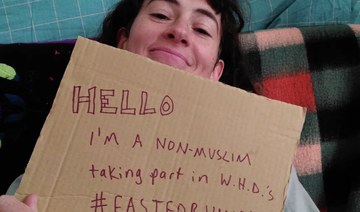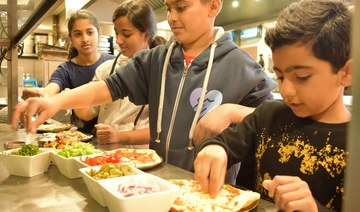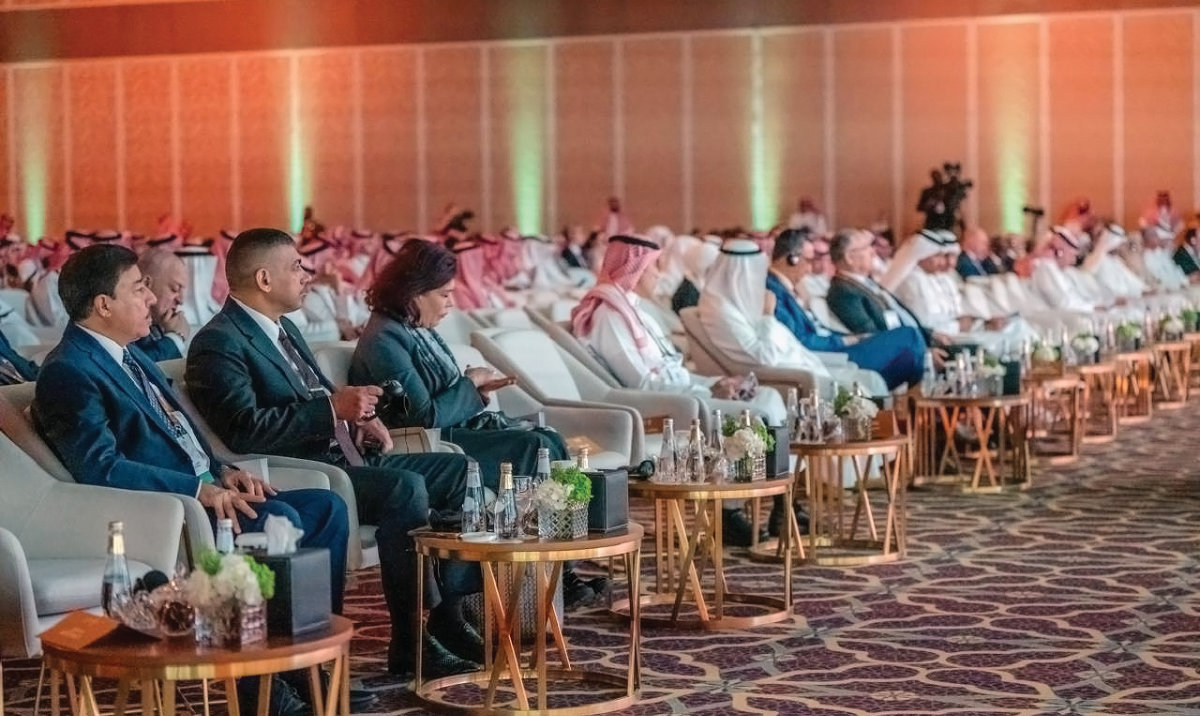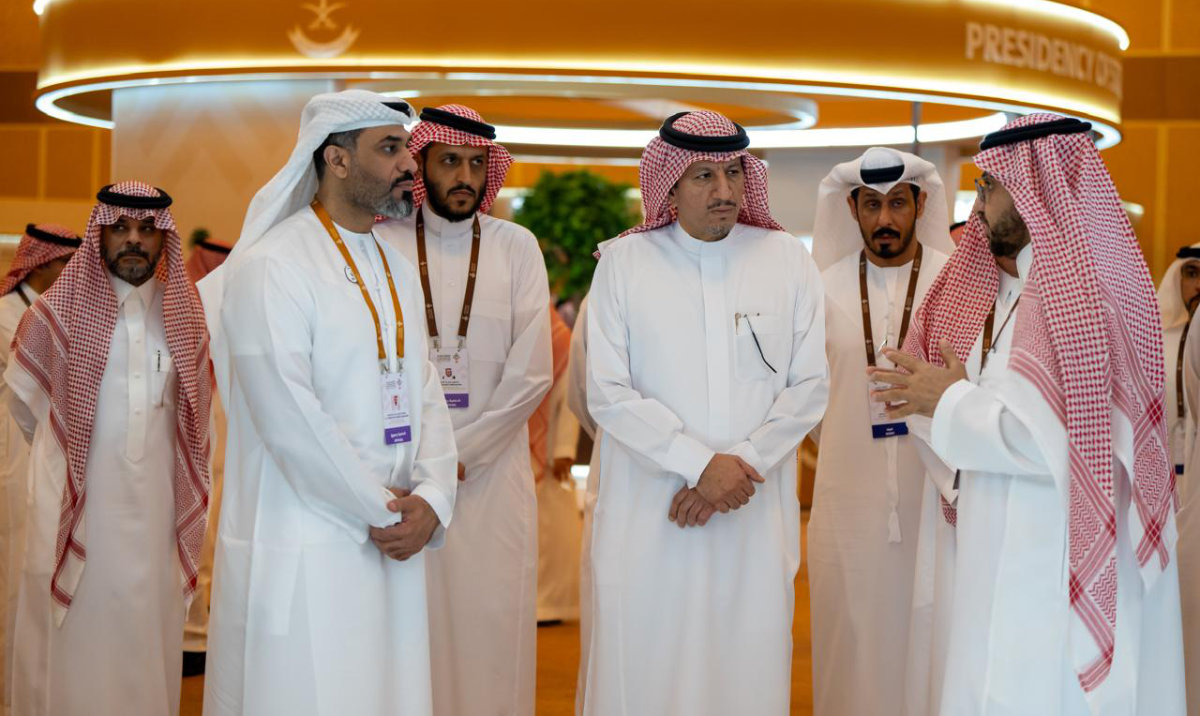RIYADH: Many non-Muslims living in Saudi Arabia have decided to fast during Ramadan to feel a sense of closeness and comradery with their Muslim friends and colleagues.
“You don’t do Ramadan only on your own — you share it. It’s a real moment of friendliness and sharing of generosity,” said Raphael Jaeger, a non-Muslim and head of the Riyadh branch of Alliance Francaise.
“I feel that I am a part of this beautiful experience, and I think of Ramadan now, and what I am doing is building this bridge between the Saudi and the French culture,” he added.
Jaeger has lived in Riyadh for three years, but said that this year was his first time fasting for Ramadan.
“My first year in Saudi Arabia, I didn’t know that many people deeply, and then COVID-19 happened,” Jaeger said.
But since then, he has made many Saudi friends and built strong relationships. Just before the beginning of Ramadan, his friends invited him to join them for iftar.
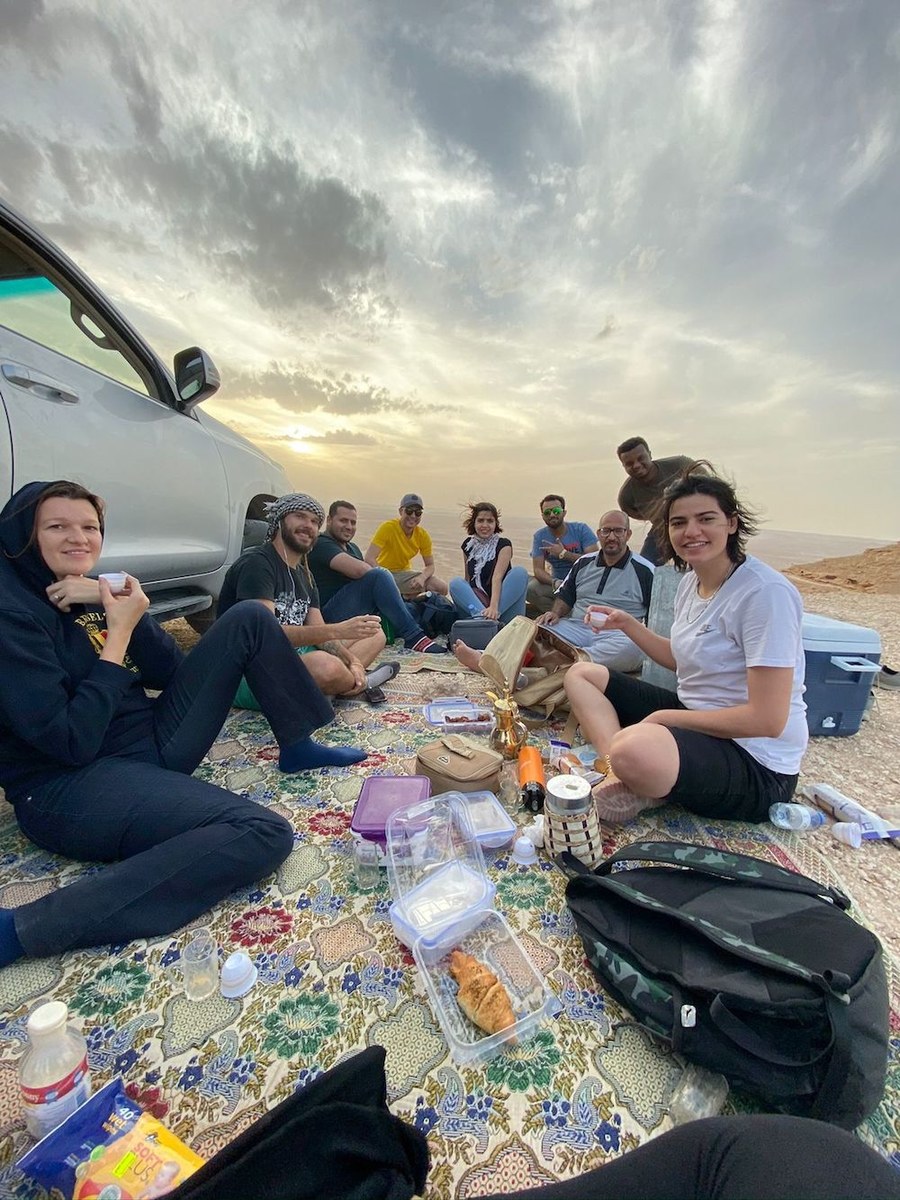
American Mariah Ross celebrates Ramadan each year with her friends and family across the countries she travels. (Supplied)
“I wanted to share with them the experience of the accomplishment, the personal, spiritual and physical challenge for iftar,” Jaeger said.
He had a squash match on the first day of Ramadan and found himself extremely thirsty during the match.
“It was the very first time and very challenging experience not to drink water, which I didn’t, and I was very proud of myself,” he said.
Jaeger compared the process of fasting to the experiences of going to the gym and surpassing a personal goal.
“These small victories that you have in life, you have it every day during Ramadan, and you have it in solidarity with so many people, that together we stand,” he said.
While Ramadan is known to have a positive impact on spiritual well-being it also has plenty of physical health benefits too. Indeed, studies suggest that fasting from sunrise to sundown can significantly improve personal health.
During Ramadan, the body gets used to eating less, and this gives the stomach and digestive system a chance to shrink. This directly controls hunger as the appetite is reduced, often leading to some weight loss.
Studies have shown that refraining from food and drink for a certain period of time also reduces cholesterol, which leads to better cardiovascular health.
When the body is on a month-long fasting journey, it naturally cleanses its system of accumulated toxins.
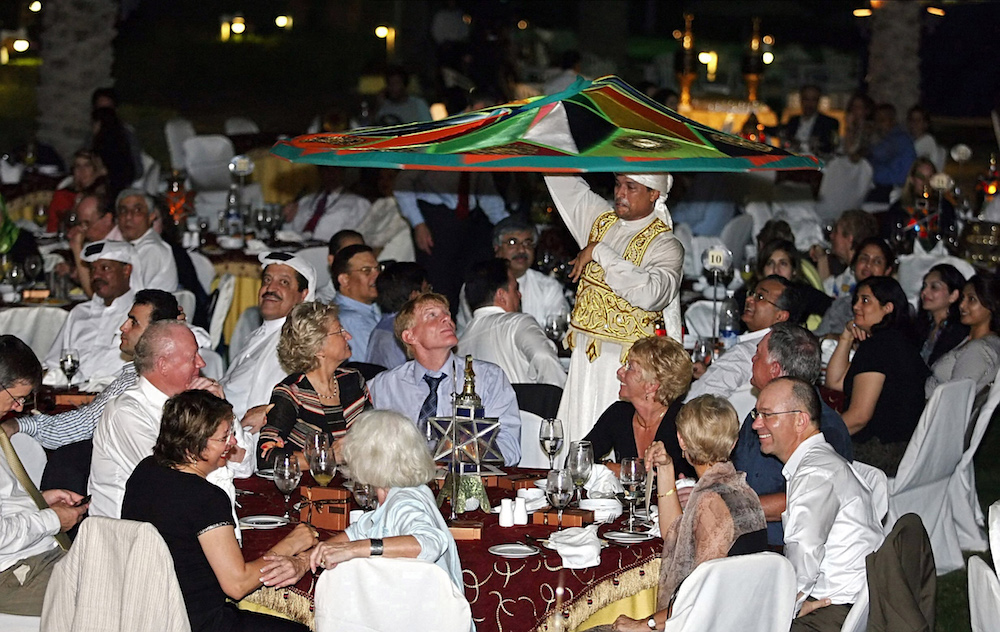
Visitors enjoy an iftar meal and tanoura dance in Qatar. (AFP/File Photo)
Due to a combination of fasting and eating late, more of the hormone adiponectin is produced, which allows the muscles to absorb extra nutrients.
There also seem to be mental health benefits. Fasting makes the brain more resilient and adaptable and improves mood and memory.
Refraining from food allows blood sugar levels to decrease, which in turn helps the body to use stored glucose for energy resulting in the body naturally regulating itself. However, people with insulin or sugar concerns should seek medical advice before fasting.
Mariah Ross, a 21-year-old from Cleveland, US, shared her experiences as a non-Muslim fasting during Ramadan.
“I started fasting when I went on my first international trip to Turkey. I was traveling with my Muslim best friend, so we decided to fast together and enjoy Turkey like the locals during Ramadan,” she said.
Ross has fasted many times during her travels in Muslim countries and while at university, where most of her core friends were from Gulf countries, including Saudi Arabia, Kuwait and Oman.
“I spent that Ramadan every day with my friends, and we always ate iftar together, either going out to eat or in one of our apartments,” she said.
FASTFACTS
* Of the Kingdom’s total population of around 35 million, there are roughly 9 million foreign workers, many of whom are non-Muslim.
* Although it is not obligatory for non-Muslims to fast in Saudi Arabia, supermarkets, cafes and restaurants are closed during daylight hours.
During her time in university, Ross married a Saudi Muslim man, and now she celebrates Ramadan with him every year.
“Ramadan is just one of those holidays that is normal to me, just like Christmas in the US where I’d buy everyone gifts,” she said.
Ana Mailova, from Georgia, told Arab News that she was fasting on her first visit to Saudi Arabia. “Of course, the first time I celebrated Ramadan with my friend Haifa and her family in Khafji. They are like my family now,” she said.
“I met Haifa through a travel company in Georgia where we worked together,” Mailova added.
She said that the owner of the travel company was Haifa’s nephew. She invited them to her home to meet her family, and their friendship flourished.
Ana said that until now, she had only viewed Ramadan practices online, adding: “Now I can do it myself.”

Women were invited to Dubai’s Jumeirah Grand Mosque to learn about Islam during Ramadan. (AFP)
She said: “Every day I connect with my family and friends by video calls and show them the beautiful and different tables. If you plan to visit Saudi Arabia, I would suggest, for my family, friends, or anyone who wants to come here, not to forget to try all kinds of food here.”
Mailova hopes more people will visit the Kingdom during the holy month of Ramadan, regardless of their religious beliefs.
“You will not regret visiting this beautiful country, especially during Ramadan,” she said.
For those who are not used to fasting, especially in an unfamiliar climate, there are many coping strategies to help them persevere and maintain their energy levels.
Once key recommendation is careful time management that allows for adequate sleep while also leaving enough time to prepare iftar meals.
Despite the temptation to rest, gentle to moderate physical activity and stretching is recommended every day. Mental discipline is equally important, with experts recommending activities that distract the mind from feelings of hunger.
Then, when people break their fast at sundown, health experts suggest eating slowly in order to aid digestion, allowing the body to absorb more nutrients, and making the body feel fuller for longer. This can also reduce the amount of calories consumed overall.
Power-napping can also help with those mid-afternoon dips. Just 30 minutes of sleep can be rejuvenating and boost both patience and happiness.
This can be followed with a cold shower, waking up the entire body by increasing circulation and oxygen intake. Although uncomfortable at first, it can actually lower stress levels in the long run.

Georgian Ana Mailova helps her Muslim friend Haifa, who lives with her in Khafji; Prepare the Iftar meal that you eat together with the rest of the family at sunset during the month of Ramadan. (Supplied)
Jan Haas, a 34-year-old German diplomat who moved to Riyadh in July 2021, told Arab News that it was his first Ramadan spent in the MENA region.
“I used to have friends on my football team who were Muslim when I was a kid in a small town east of Cologne. So I was introduced to Ramadan at a young age, but I did not consider fasting myself at the time,” he said.
“I see this as an opportunity to try and get a better feeling for their experiences and their way of life.”
He tried a strict fasting routine in accordance with Muslim rules, but quickly realized it was too difficult to sustain.
“I do have my coffee in the morning and will usually have some water during the day, but I do not eat until sunset,” Haas said.
He added that with many restaurants closed during the day in the Kingdom, it makes fasting a lot easier.
“I spend more time with friends and in social settings through the habit of breaking the fast together. It’s a wonderful thing.”
Although they differ in religious beliefs, many expats have connected and built lasting friendships with local Muslims living in the Kingdom. These fruitful friendships have resulted in the sharing and fusion of cultures and practices.




